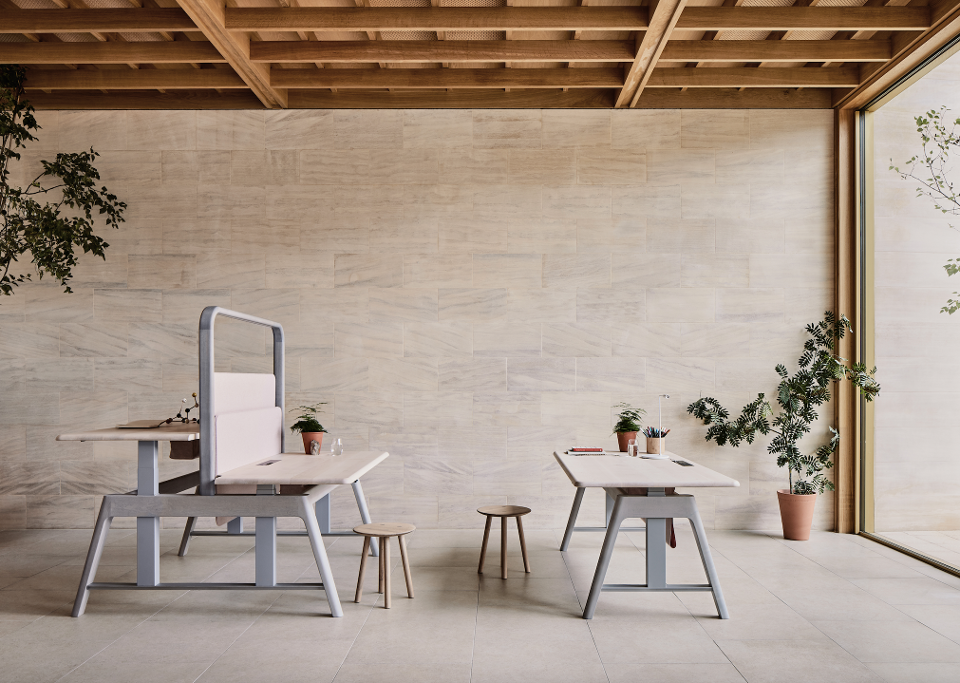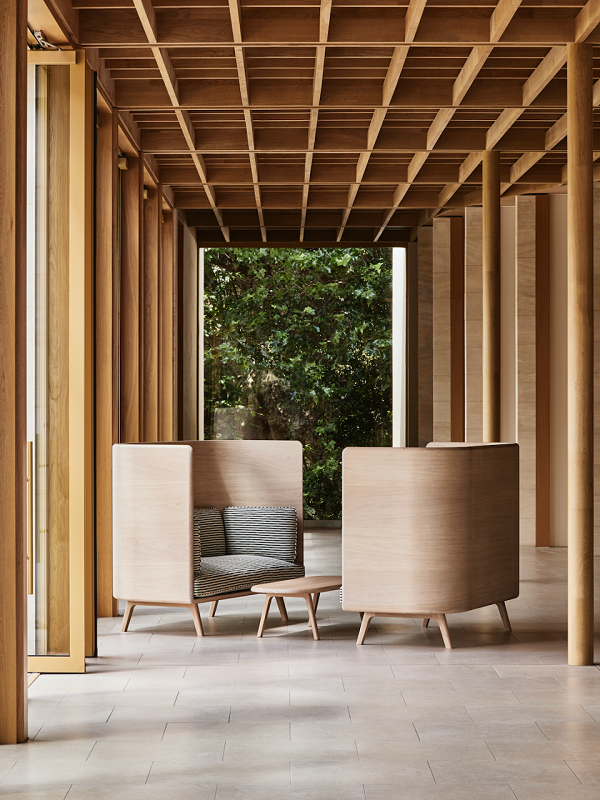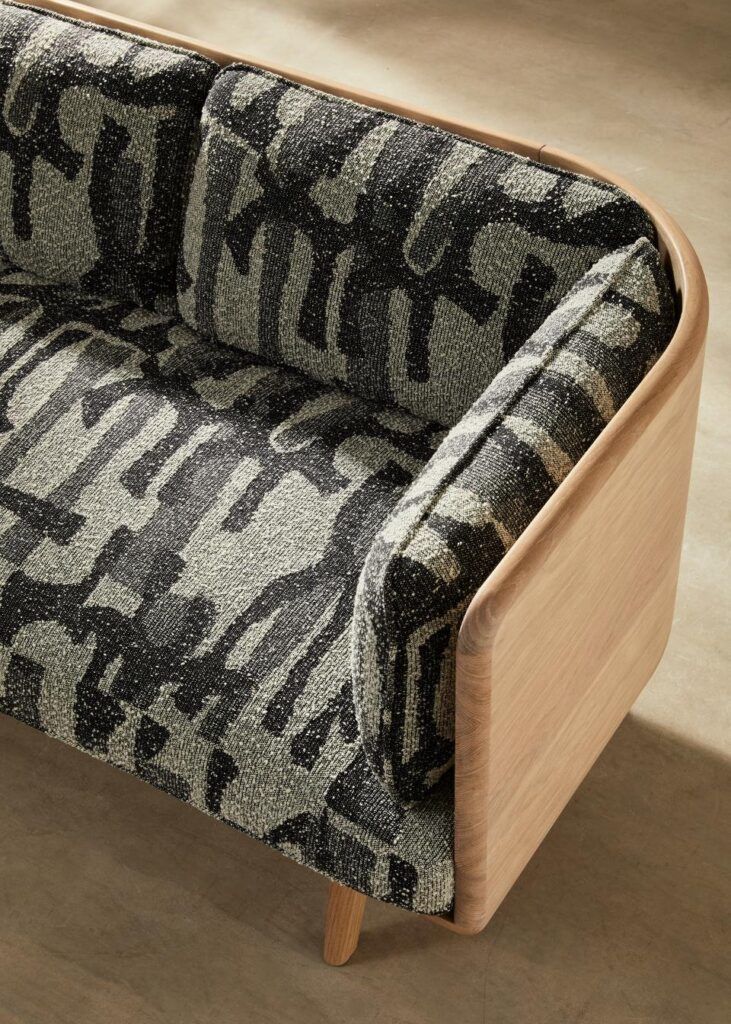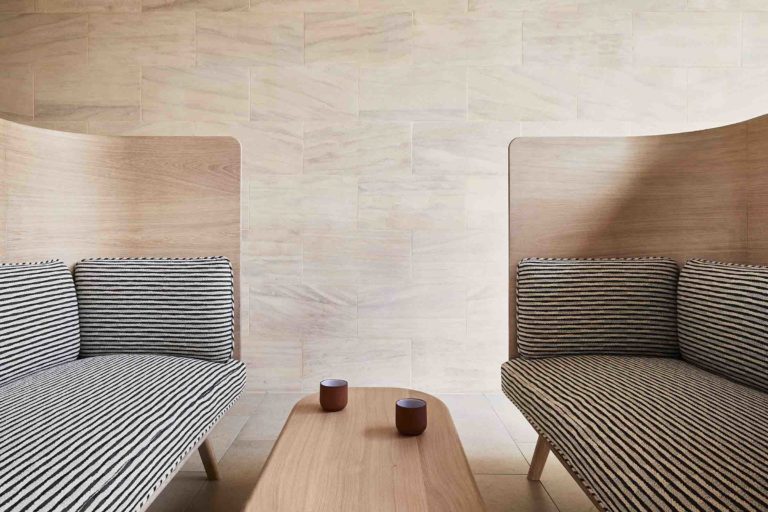Benchmark’s Sage Collection Takes Sustainable Furniture Design to the Next Level

With sustainability and air quality in mind, an architect and a furniture manufacturer have joined forces to create a furniture collection that uses natural products without chemical offsetting. The approach is dual-faceted: consider the planet during material selection, and consider the wellness of the user.
“We can make a positive impact and make sure what we surround ourselves with has a positive impact on us.” says Sean Sutcliffe, founder of Benchmark, a U.K.-based furniture manufacturer. “Sustainability has always been at the heart of what we do, and it is an area we are always striving to be better in. You are never done with being sustainable.”
To achieve this goal, all wood for this new furniture line is FSC-certified and sourced from sustainably managed forests. In an effort to avoid using any synthetic materials whatsoever, the designers also used wool for the upholstery and copper for the accents. The team even turned to experts in the field at The Naturalmat Company to find solutions centered around natural materials. As a result, four materials are combined in the new pieces for maximum comfort and sustainability. These include Soil Association-certified organic wool from farms in Devon, Dorset, and Somerset, coir (a fiber derived from coconut husks), natural latex (made from the soap of the Hevea rubber tree), and recycled cotton. To finish the products, the team used natural oils rather than relying on toxic chemicals and VOCs.

“Critical issues being discussed around sustainability and the use of finite resources on the planet have stimulated very intelligent discussions in the design of products and buildings,” states David Rockwell, U.S. architect and owner of Rockwell Group, adding: “It’s incredibly important — the materials we have on the planet are all we have and these pieces are built to last for generations. Sean Sutcliffe and his team are true craftspeople who think about material origin and how an object is made, produced, and recycled.”
Transparency was crucial for the team in an effort to clearly outline their supply and manufacturing processes. As a result, the Sage collection is labeled with a DECLARE designation, a label that answers the questions:
“Where does a product come from?
What is it made of?
Where does it go at the end of its life?”

User comfort is also considered in the designs. Aesthetically-pleasing curved edges and careful attention to the direction of the wood grain exemplify this idea. To top it all off, every piece in the Sage collection has also been ergonomically designed for long-term use and comfort.
Benchmark and the Rockwell Group’s efforts to account for the well-being of their consumers haven’t gone unnoticed. The new collection has already qualified for WELL certification: a distinction given to projects that stress the importance of human health.

The collection, launched at 100% Design during the recent London Design Festival, includes several striking pieces. Standout items include sitting and standing desks, meeting and occasional tables, sofas, and storage containers.

Thoughtful furniture design means creating pieces that can be used for generations and subtracting from the typical waste of revolving short-term options. Equal to the usefulness of the collection is the overarching goal of the collaboration between the like-minded duo: to inspire other designers and manufacturers to focus on sustainability and less-impactful processes for the industry as a whole. They hope for a future where businesses are transparent throughout the supply and production chain, and where everyone focuses on doing the right thing for the planet.




